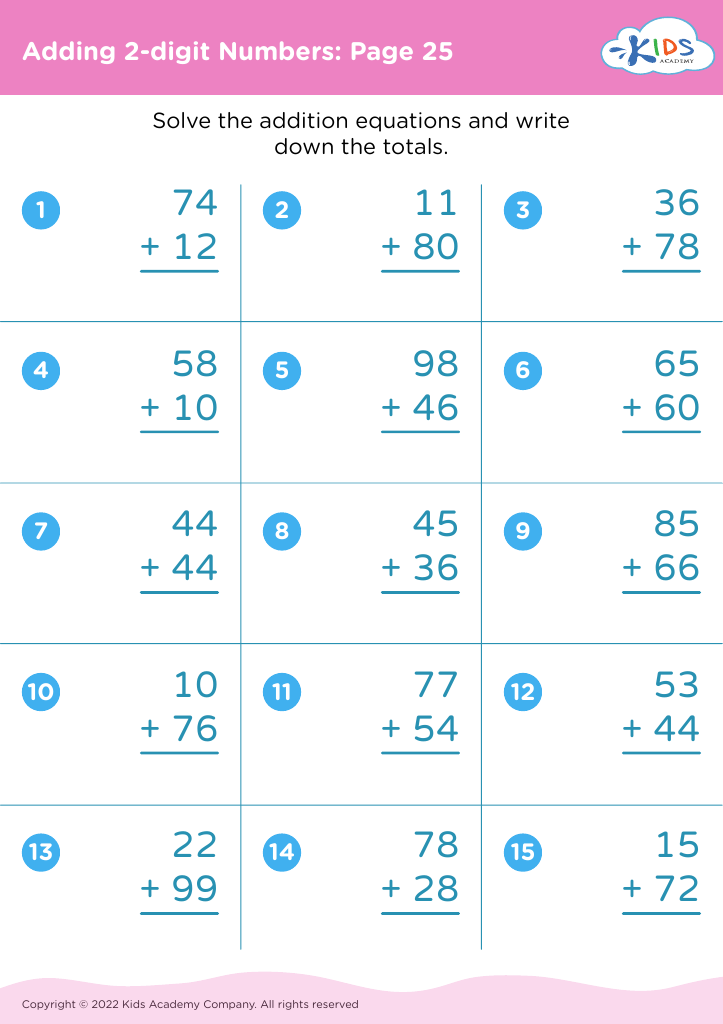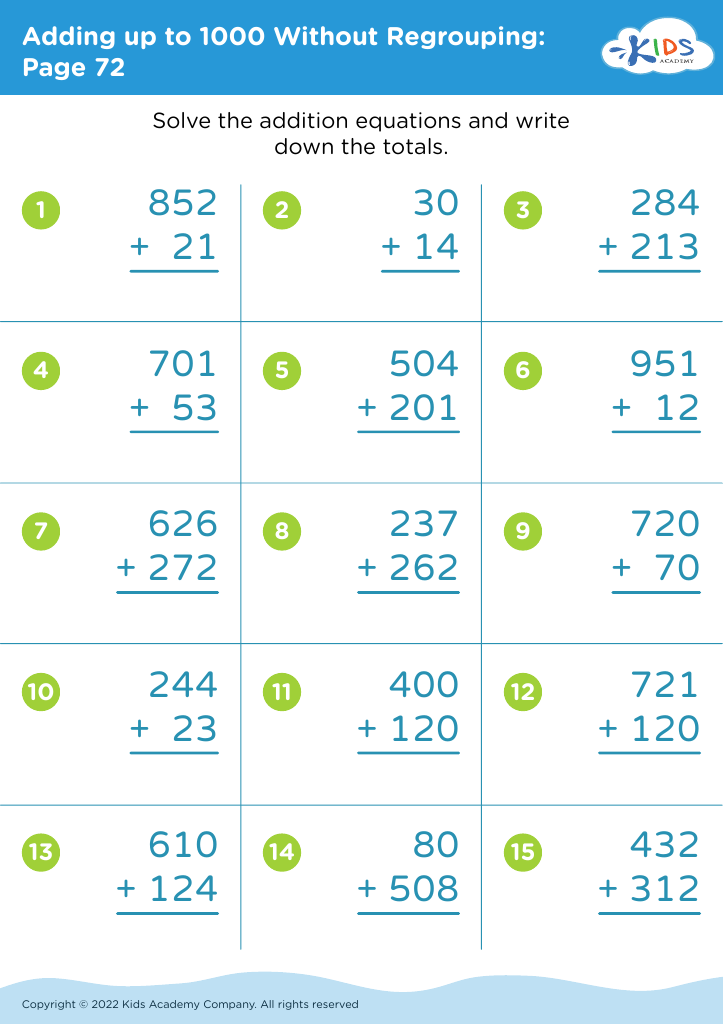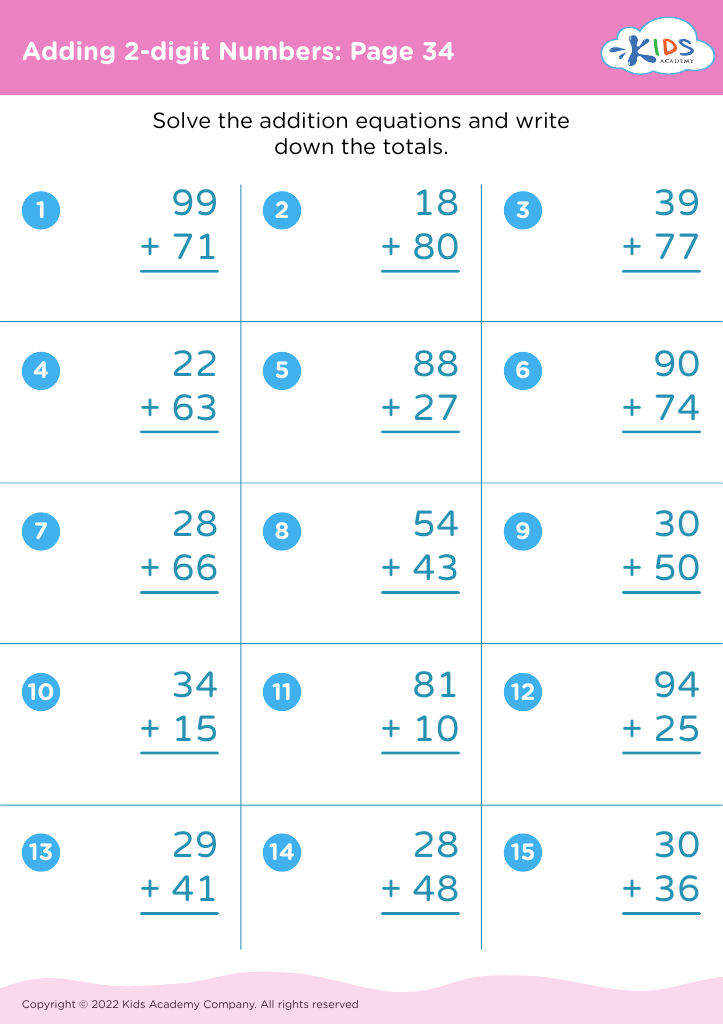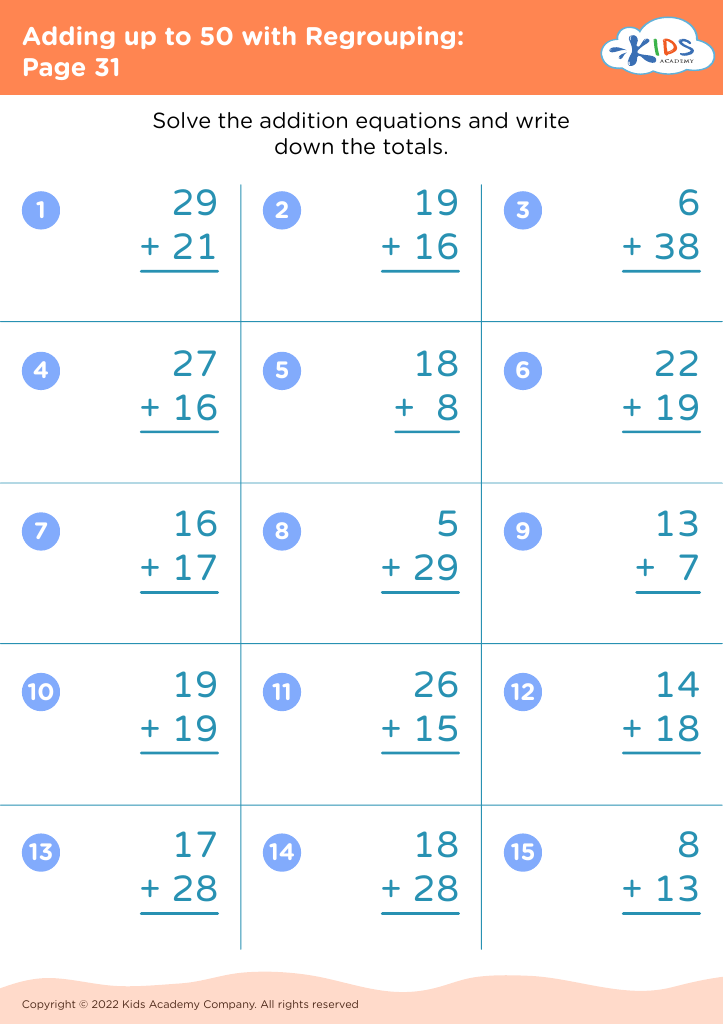Develop logical thinking Math Worksheets for Ages 5-8
9 filtered results
-
From - To
Unlock your child's potential with our engaging "Develop Logical Thinking" math worksheets, designed specifically for ages 5-8. These thoughtfully crafted resources help young learners hone their reasoning skills through fun and interactive activities. Explore an array of exercises, including puzzles, pattern recognition, and problem-solving tasks that stimulate critical thinking. Ideal for both classroom and home use, our worksheets make math enjoyable while reinforcing essential concepts. Empower your child to excel in logical reasoning, setting a strong foundation for future academic success. Dive into our collection today and watch their confidence grow as they tackle each exciting challenge!
Developing logical thinking skills in young children, especially in the context of mathematics, is crucial for their overall cognitive growth and problem-solving abilities. For children aged 5-8, logical thinking forms the foundation of more advanced math concepts and critical reasoning skills. When parents and teachers prioritize logical thinking in math, they are not just teaching counting or basic operations; they are nurturing a child’s ability to analyze situations, draw conclusions, and make informed decisions.
At this age, children are naturally curious and eager to explore. Engaging them in logical thinking through math activities—like puzzles, pattern recognition, and simple problem-solving tasks—enhances their creativity while strengthening cognitive skills. These experiences cultivate a mindset that encourages exploration and persistence, crucial traits for academic success.
Moreover, children who develop strong logical thinking skills tend to excel in various subjects beyond math. They learn to approach challenges systematically, fostering resilience and innovative thinking. Furthermore, a solid foundation in math can lead to increased confidence, reducing math anxiety commonly seen in later years. Thus, parents and teachers should embrace strategies that promote logical thinking in mathematics, recognizing its profound impact on a child's future learning and life skills.


























